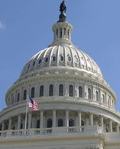 House Foreign Affairs Committee Passes Act Authorizing U.S. participation in CEPI
FDA Adds Three to Tropical Disease Priority Review Voucher Eligibility
COVID-19 Relief Package Stalls
Health, Economic Assistance, Liability Protection and Schools (HEALS) Act
House Foreign Affairs Committee Passes Act Authorizing U.S. participation in CEPI
FDA Adds Three to Tropical Disease Priority Review Voucher Eligibility
COVID-19 Relief Package Stalls
Health, Economic Assistance, Liability Protection and Schools (HEALS) Act
ASTMH has continued to make its priorities and concerns clear to Congress and the Administration. Letters that ASTMH led or joined include:
- A letter urging the Administration to reverse its decision to bypass the CDC in the collection and analysis of COVID-19 patient data, and calling on the CDC to address institutional racism
- A letter to HHS Secretary Alex Azar thanking him for extending the Public Health Emergency
- A letter to Attorney General William Barr and Acting Homeland Security Secretary Chad Wolf expressing grave concerns about a proposed rule that would block refugees from obtaining asylum and other humanitarian protections in the United States, purportedly to protect public health during pandemics
House Foreign Affairs Committee Passes Act Authorizing U.S. participation in CEPI
In late July, the House Foreign Affairs Committee passed the Securing America from Epidemics (SAFE) Act, authored by subcommittee chair Ami Bera (D-CA). The SAFE Act authorizes U.S. participation in CEPI and passed the subcommittee with bipartisan support. The House previously passed text of the SAFE Act as part of the HEROES Act.
FDA Adds Three to Tropical Disease Priority Review Voucher Eligibility
In July, the FDA added opisthorchiasis, paragonimiasis and brucellosis to the tropical PRV list. At the same time, the FDA rejected PRV eligibility for coccidioidomycosis and clonorchiasis.
COVID-19 Relief Package Stalls
House Speaker Nancy Pelosi (D-CA), Senate Minority Leader Chuck Schumer (D-NY), Treasury Secretary Steven Mnuchin and White House Chief of Staff Mark Meadows were unable to come to an agreement on a new COVID-19 relief package. Unemployment and aid to state and local governments appear to be the main sources of disagreement. Senate Majority Leader Mitch McConnell (R-KY), despite having introduced the Health, Economic Assistance, Liability Protection and Schools (HEALS) Act several weeks ago as the Republican counteroffer to the HEROES Act, has not taken part in negotiations directly.
Health, Economic Assistance, Liability Protection and Schools (HEALS) Act
The HEALS Act is the latest Republican coronavirus relief proposal. It is technically a package of bills, rather than one overarching proposal. One component, the Coronavirus Response Additional Supplemental Appropriations Act, would provide $118.4 billion in additional funding for HHS, including:
- $15.5 billion for NIH, of which
- $10.1 billion for NIH labs
- $1.33 billion for COVID-19 research at smaller ICs, allocated at the NIH Director’s discretion
- $1.24 billion for the ACTIV public-private partnership
- $480.56 million for NIAID
- $240 million to fund extended research time for young researchers
- $78.1 billion for the Public Health and Social Services Emergency Fund, of which (not exhaustive):
- $25 billion for testing and contact tracing at the state level
- This includes $9 billion still unspent from the Paycheck Protection Program and Health Care Enhancement Act, which tweaked some provisions of the CARES Act
- $20 billion for BARDA for the development and manufacturing of vaccines, treatments and diagnostics
- $6 billion for vaccine distribution, coordinated by CDC
- $2 billion for the Strategic National Stockpile
The same bill would provide $4.435 billion in State and Foreign Operations funding, including:
- $4.01 billion for USAID, of which
- $3 billion is for GAVI
- $1 billion is for International Disaster Assistance, including global vaccine distribution
- Strangely, the text mentions the World Food Programme in regards to vaccine distribution
- $10 million for emergency operating expenses